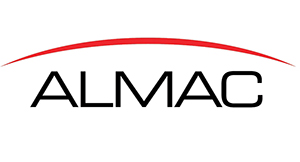CSS- Albachem secures share of
CSS-Albachem, a division of Craigavon-based Almac Sciences Group, has secured part of a
CSS-Albachem, a division of Craigavon-based Almac Sciences Group, has secured part of a £3.7m r&d programme from ITI Life Sciences focused on the development of cell-based, pharmaceutical screening technologies to address a significant bottleneck in the drug discovery and development process.
This is the first programme launched by ITI Life Sciences and follows a detailed analysis of the pharmaceutical market and its existing and future needs for this technology. ITI Life Sciences is a new company driving Scotland's ambitious plans to identify, develop and commercialise valuable technology-based intellectual assets in the life sciences sector. The group's aim is to bridge the increasing funding gap between publicly funded early stage research and privately backed commercial development.
The three-year programme will take place in Scotland as a three-way collaboration between CSS-Albachem, Edinburgh Instruments and Hannah InterActions. Edinburgh Instruments is globally recognised in the development and manufacture of high-tech optoelectronics instrumentation while Hannah InterActions brings expertise in advanced cell based technologies specialising in cell function and its relevance to cancer. CSS-Albachem is an acknowledged expert in the provision of complex and challenging peptides and proteins. Initially the programme is focused on developing instrumentation and cell-based screens for breast cancer, with plans to expand to other disease areas as the technology develops.
Cell-based screening is a key step in the drug discovery and development process where it is used to rapidly evaluate cellular mechanisms of disease as well as the effects of new drug candidates, such as distribution, metabolism or toxicity, in relevant cells.
This information is vital to pharmaceutical companies as it allows the selection of the most appropriate compounds to develop further. Three-dimensional cell cultures represent the most advanced model to date, providing a much closer representation of the biological environment in living organisms than previous biochemical models.
Approximately half of all assays used in this way are cell based and this represented a global market opportunity of US$750m in 2004. ITI Life Sciences estimates this market will grow by 20% over the coming years and the use of sophisticated fluorescence-detection methods is set to account for two thirds of this.
In the ITI Life Sciences programme, the three participating companies involved will provide complementary expertise in order to develop and commercialise 'Fluorescence Lifetime' cell-based assay products, including 'off the freezer shelf' cells ready for screening, unique fluorescence-linked reagents and state-of-the-art optics and detection instruments.
David Moody, vice president commercial operations, said: 'We are delighted by this important development for us and our industry. We are committed to solving challenging problems for our customers from drug discovery to API supply. Partnerships such as this are important in achieving that end and will remain a feature of our strategy.'

